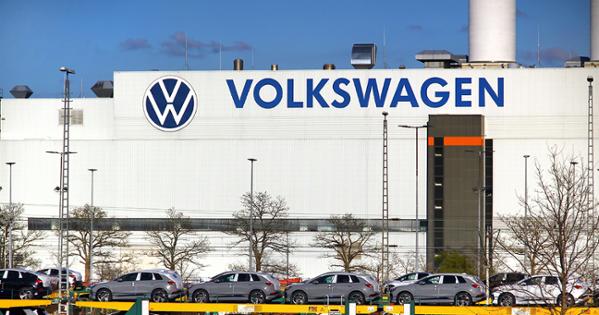Analysis: Volkswagen Considers Plant Closures in Germany

Volkswagen made headlines earlier this month when it announced that it may consider closing factories in Germany for the first time in company history in an effort to cut costs. Volkswagen warned that plant closures could be part of a range of “cost-cutting measures” to “future-proof” the company amidst increased competition in the automotive industry, according to CNBC. The announcement was met with quick criticism from trade unions in Germany, who have insisted they will fight any factory shutdowns.
To better understand the implications of a potential shutdown of German Volkswagen plants, we asked SIS professor Stephen Silvia a few questions. Silvia is a professor in the SIS Department of Politics, Governance & Economics who researches comparative labor employment relations and comparative economic policy. He is the author of The UAW’s Southern Gamble: Organizing Workers at Foreign-Owned Vehicle Plants.
- Volkswagen announced in September that to cut costs it may consider shuttering factories in Germany for the first time in its 87-year history. How monumental is this announcement?
- The announcement that Volkswagen management is considering closing plants in Germany is a shock because the company has never closed a German plant in 87 years. The last plant VW closed anywhere in the world was the Westmoreland County, Pennsylvania, facility in 1988.
- Volkswagen has been hit with several blows over the past decade, starting with the emissions scandal when Volkswagen was caught using software to falsify the emissions reports of its diesel automobiles. The company had to compensate customers and pay substantial fines to several governments as a result. This was only the beginning.
- The rapid growth of Chinese electric vehicle production has cut into VW's sales both in European markets and in China, where it sells most of its vehicles. Volkswagen management responded by investing heavily to develop its own EVs but has not been able to match the low cost and design prowess of the Chinese producers. The company has had particular difficulties developing EV software. The European Union has just imposed stiff tariffs on Chinese EVs, but this is a two-edged sword for VW; It shelters the company's European production but prices VW EVs made in China out of the European market. US tariffs on Chinese-made EVs have the same effect.
- The sputtering European economy has also hurt Volkswagen. The war in Ukraine has hit Germany particularly hard because it was heavily dependent on Russian gas imports. The country has teetered on the brink of recession for several years as a result.
- IG Metall, the union representing German autoworkers responded to the announcement from Volkswagen with a vow to fight job cuts. Additionally, union leaders and representatives make up half of the seats on the company’s supervisory board, according to the New York Times. What kind of power does the autoworkers union hold in this situation, and have they ever faced a situation like this before?
- Volkswagen's German workforce is fighting back. They are in a particularly strong position to do so. Employee representatives have half the seats on Volkswagen's supervisory board, and the state of Lower Saxony, which currently is governed by a coalition of the Social Democratic and Green parties, controls two additional seats. The supervisory board ultimately must approve any restructuring plan. The Volkswagen works council is also influential because German law requires works council approval of any plans for mass layoffs, which must include a severance package before management can implement them. VW management agreed with the powerful German metalworkers union, IG Metall, to forego layoffs through 2029. The union could strike VW plants if it breaches this agreement.
- If shutdowns of Volkswagen plants in Germany do materialize, what impact would this have on Germany’s economy?
- Volkswagen management's announcement is the opening bid in a tense set of complex negotiations. It is likely that a final agreement will not include a plant closure in Germany but instead an early retirement package and other employee buyouts. Both labor and management will angle for government assistance to minimize the impact of VW's restructuring on employees. The news is not good for the German economy. Unemployment remains low but the impact of VW's retrenchment will affect suppliers and other firms that depend on VW and its employees for business.